Working Through Our Wounds To Move Forward: Scotty Hasting & Dave Gibbons
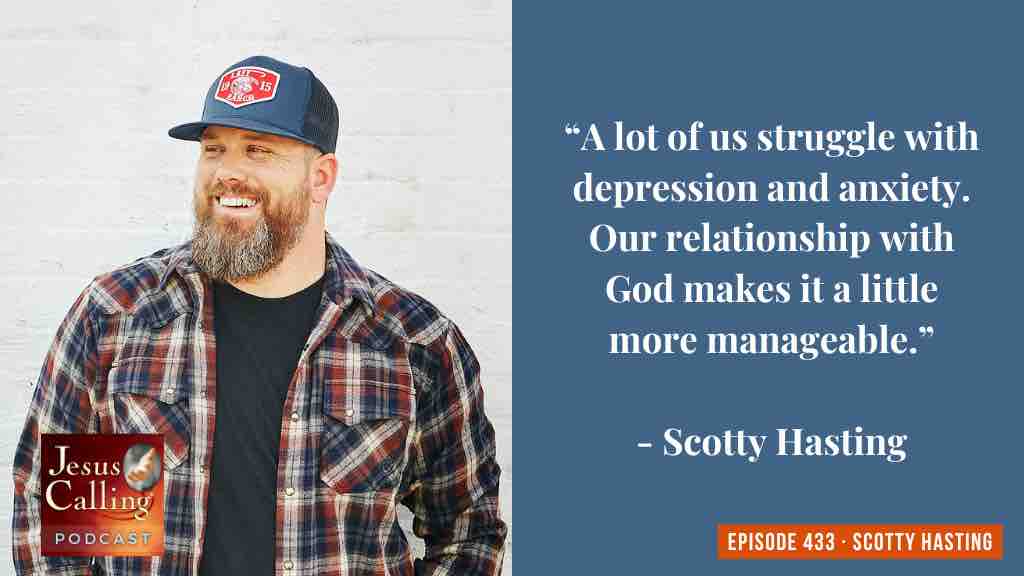
This content may be triggering for some listeners.
Scotty Hasting: Our God’s big enough to where I can ask questions and where I can get upset sometimes. That’s okay. You’re allowed to do that, but just understanding He’s there.
Working Through Our Wounds To Move Forward: Scotty Hasting & Dave Gibbons – Episode #433
Narrator: Welcome to the Jesus Calling Podcast. This week we talk with Scotty Hasting, a combat wounded Army infantryman turned national recording artist. Scotty’s journey from the battlefield to the stage is nothing short of remarkable. After surviving a harrowing attack in Afghanistan, where he was shot multiple times, Scotty fought to recover physically, emotionally, and spiritually. Through his battles with PTSD and depression, he found healing in music—an outlet that not only brought him peace, but gave him a new lease on life.
Later in the episode, we’ll hear from Dave Gibbons, a globally connected advisor, author, and senior pastor at New Song Church in California. With a life shaped by diverse cultures and a deep understanding of human struggles, he opens up about his early experiences with faith, the hidden wounds from his past, and his journey through betrayal, forgiveness, and mental health breakthroughs—revealing how forgiveness has the power to heal even the deepest wounds.
Let’s begin with Scotty Hasting.
Scotty Hasting: My name is Scotty Hasting. I am a combat wounded Army infantryman and a national recording artist with Black River Entertainment.
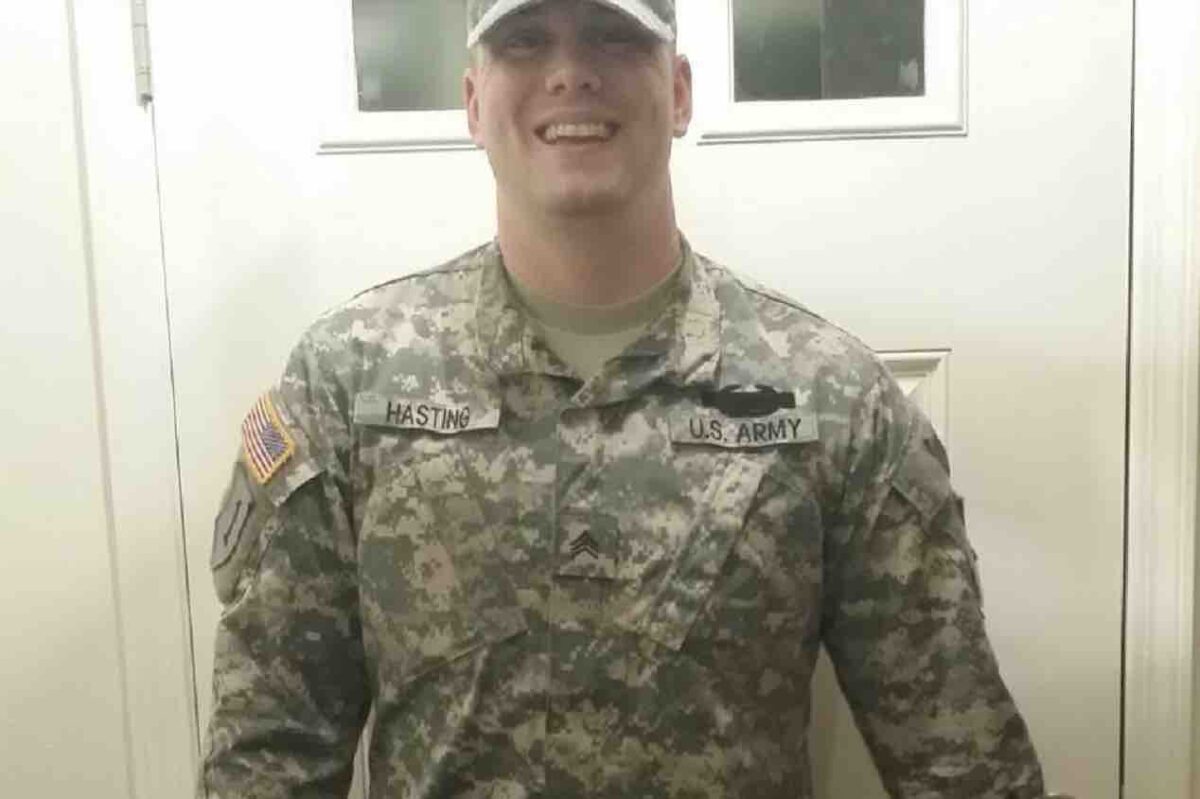
I always had a feeling that I wanted to be a part of something bigger than myself. So in 2010, I decided to join the military. I went to the recruiter’s office and met with him. I enlisted in the United States Army. I signed up as an infantryman and then went to basic training and then three months after that, I was in Afghanistan.
The Physcal and Mental Wounds of War
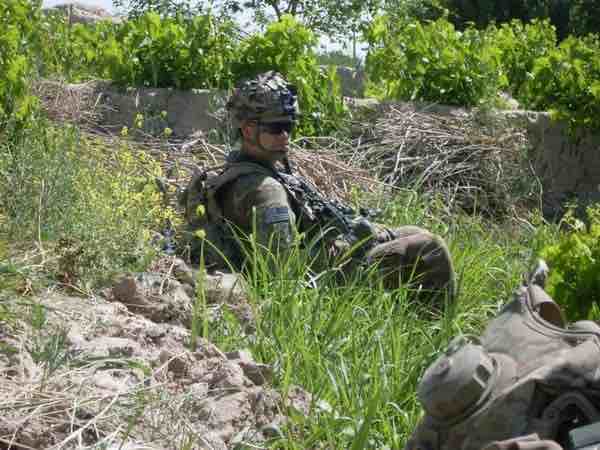
April 21st, 2011, we were on patrol in the Kandahar Province of Afghanistan. Basically, we were on a mission to go find a suspected bomb maker and just ask him some questions, try to figure out some information that we were looking for.
There was a guy that was hiding behind a wall, and he was just waiting for us to come across him. And he saw me because I was in front, and he just opened fire, and I was the brunt of the attack that day. I was shot five times in the shoulder, four times in the hip, and once in the thigh. I felt every round go through my body. I still remember very clearly what that felt like.
It’s hard to not let your mind go there, that, This could be it, I’m dying. There’s no coming back. But in our training, the thing that they tell you is going into shock is the number one killer of combat injuries. So in order to not go into shock, I just basically tried to stay as calm as possible. I mean, here I am in a crazy amount of pain. But I was just trying not to think about that and trying not to think about what just happened and really trying to focus on my family and trying to focus on it being like a normal day with my buddies, you know, cutting up and making jokes and trying to be as normal as possible and as calm as possible.
There was a point where I was losing so much blood that my eyesight shut down, and it was just kind of like a white film. And at that moment, I was like, Is this it? Is this the light? I remember just how incredibly easy it would have been to just give up and just let it go. I remember how peaceful it felt to just want to just stop fighting and just drift off. It was almost like being just so incredibly tired that your body’s just like, Okay, time to go to bed. It was magnified a hundred times. It was insane.
Forty-five minutes later, I was in a helicopter and I got to the Kandahar Airfield, where they did the initial light trauma assessment. They started giving me blood, my eyesight started coming back, and I was like, Oh, my God, I can see. And I just passed out.
Transitioning From the Military to Music
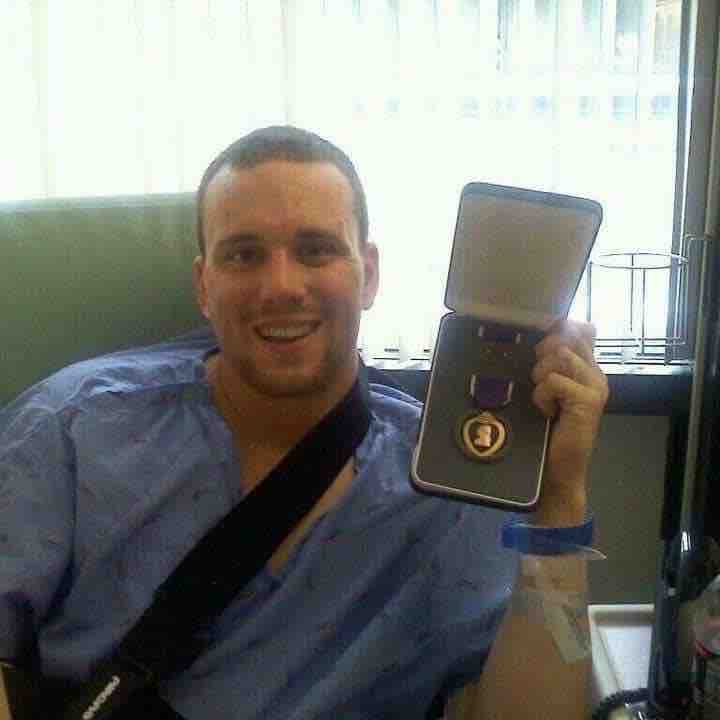
The military was what I wanted to do as a career. I fought like crazy for four years to go back. I didn’t want to not be with my guys. Unfortunately, with the injuries that I have, I was not able to continue with active service. And now, I had to try to figure out what to do next.
After going through everything that I’ve gone through, it truly made me understand that life is precious, that every moment is precious, and that you need to live every second to the fullest. Because as I have seen, life can change very quickly. It made me understand that there’s something else that I have to do.
“After going through everything that I’ve gone through, it truly made me understand that life is precious, that every moment is precious, and that you need to live every second to the fullest. Because as I have seen, life can change very quickly.” – Scotty Hasting
I’ve been incredibly blessed in my life to have something that I can [use to] escape from the PTSD and the depression. Throughout my transition out of the military, at first it was archery. I shot archery with the U.S. Paralympic program. I traveled all over the country, shot professionally. Archery was—for the seven seconds before I released that arrow, nothing else in the world matters. The PTSD, the depression, the anxiety, it’s all gone. Then COVID hit, and the world shut down, which means archery shutdown, which means my outlet, my escape from the PTSD, the depression, the anxiety was gone.
When it’s quiet is when the demons knock the loudest. And for the longest time, I wanted nothing to do with going to church and with God, and I didn’t want to be a part of that. I needed something to get out of my head. I needed something to escape into. I needed something to find peace.
“When it’s quiet is when the demons knock the loudest. And for the longest time, I wanted nothing to do with going to church and with God.” – Scotty Hasting
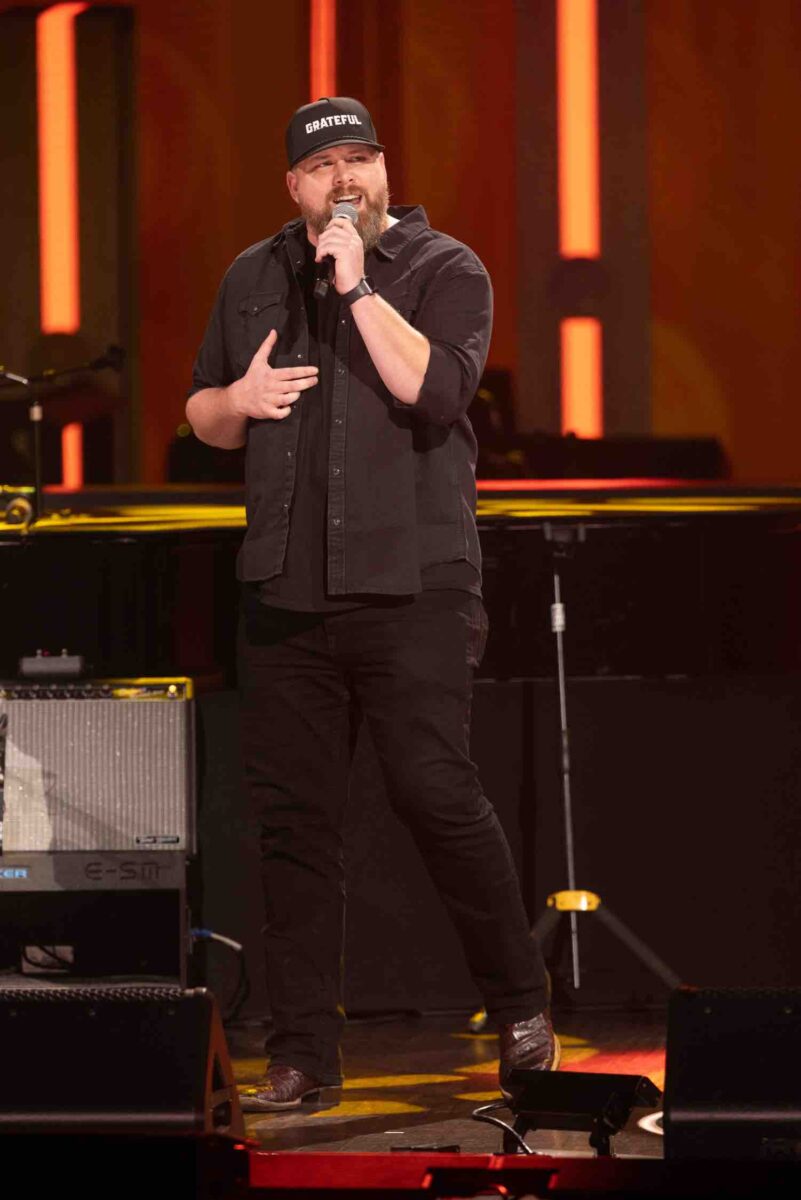
And I had a guitar in the corner of my room, and one day I was like, You know, I’m going to learn how to play this. I jumped on YouTube, and I started learning how to play the guitar. I started learning songs that I grew up listening to. It was a little bit harder for me because I have nerve damage in my hand. I have no feeling in my hand whatsoever. So basically, I just had to strum.
And then one day, I was just sitting there and I was playing the guitar, and I was like, I want to write something. I have all these emotions and all these thoughts, I want to put them somewhere. I want to take them out and put them somewhere, instead of letting the cup overflow.
I started learning how to write songs. As someone who suffers from PTSD, depression, and anxiety, it’s hard to find a moment to be lost in, because it’s hard to not be over there. It’s hard to not be back in Afghanistan all the time.
“As someone who suffers from PTSD, depression, and anxiety, it’s hard to find a moment to be lost in, because it’s hard to not be over there. It’s hard to not be back in Afghanistan all the time.“ – Scotty Hasting
And then slowly, the world started opening up again, and I was like, You know what? The outskirts of Nashville are starting to open up. So I went on stage and I played the first song that I ever learned how to play, it was “Should Have Been a Cowboy.” At that moment, I knew that this is what I needed to do forever. That escape and that peace and that sense of purpose was there. My therapy is being on stage. My therapy is playing the songs and being lost in a moment. If I can find a way to be in a moment somewhere, that’s one of the most valuable things that I can do. And now, about eight months ago, I just signed my record deal and my publishing deal, and it’s been incredible.
Survivor’s Guilt: “How Do You Choose?”
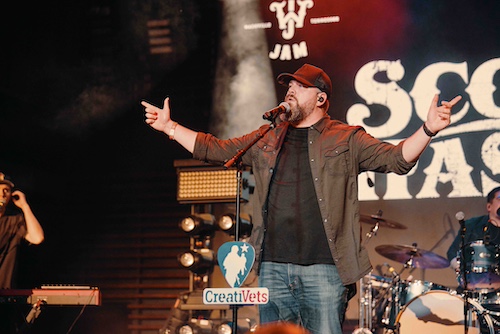
My song, “How Do You Choose” is my survivor’s guilt put into words. And that’s something that veterans don’t really talk about.
At the time when we wrote it, I was struggling with my best friend getting killed. My best friend Adam Hamilton was killed when we were in Afghanistan. Unfortunately, he was killed after I got shot, so there was nothing I could do to help in any way, shape, or form. I fought with that for a long time. I was stuck with this overwhelming sense of how do you choose, right? How am I here? I was shot ten times. There’s people that get hurt far less than I do, and they’re not even here anymore. How does that make sense? Adam was the best of us. Why me? Here I am in a place that I never thought that I would ever be. One of the greatest places in the world, in country music especially. I’m doing something that was beyond anything that I ever thought. And in that moment it hit me so hard to be like, Why do I deserve this?
PTSD and depression and anxiety will always be there. My relationship with God makes it a little bit more manageable. That doesn’t mean that I still don’t ask those questions, or get upset sometimes. Our God’s big enough to where I can ask questions and where I can get upset sometimes. That’s okay. I mean, you’re allowed to do that, but just understanding that He’s there.
“PTSD and depression and anxiety will always be there. My relationship with God makes it a little bit more manageable.” – Scotty Hasting
“How Do You Choose?” is the hardest thing I’ve ever written. But it was the song that I needed to write in the moment.
Connecting With Veterans at the 80th Anniversary of D-Day
I had the opportunity to go to the 80th anniversary of D-Day in Normandy, France. I’ve never seen a place that was so bright and so rich in tradition and understanding the past and wanting to respect and honor the past and respect and honor the American people. It was some of the most beautiful places that I’ve ever seen in my life. There were buildings there that are older than our country. It was truly remarkable.
I was able to connect with a WWII veteran by the name of Dennis Bolt. He’s ninety-nine years old. It’s the first time that he’s been back since he stormed the beaches in Utah. It’s incredible to be over there because these guys who went through hell, I mean, they truly went through the worst of the worst at our world’s worst time—and they were back and they were treated like rockstars. And it was so cool to see the appreciation for what they’ve done and how it’s been passed down from generation to generation. It was truly life-changing.
Honoring Our Veterans’ Service
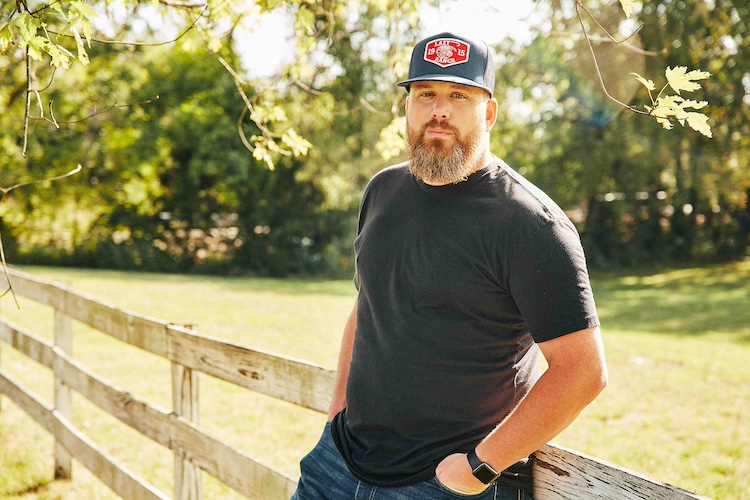
It makes me incredibly proud to be able to say that I served my country, that I was a part of something bigger than myself. I’m a part of a brotherhood that will never waver, a brotherhood that will always be there for each other no matter what.
“It makes me incredibly proud to be able to say that I served my country, that I was a part of something bigger than myself. I’m a part of a brotherhood that will never waver, a brotherhood that will always be there for each other no matter what.” – Scotty Hasting
A lot of us struggle. A lot of us go through stuff, and a lot of us get in our own heads. If you see someone wearing a veteran cap or a shirt, just go up and thank them for their service. You have no idea how much the words thank you can just change someone’s life. To hear that someone appreciates what we did and what we do, it can truly change and save someone’s life. There’s a lot of veterans out there that just want to tell stories. They want to talk about their friends and their loved ones that they lost, and keep their memories alive.
And now with what I’m doing, I get to be a part of trying to help them and trying to help them find healing in some way, shape, or form—like I was able to with music. I feel like God has given me the ability to do some good.
This is from Jesus Listens, October 10th:
My Jesus,
You know about every one of my troubles; You have collected all my tears and preserved them in Your bottle. So please help me not to be afraid of tears—or of the hardships that cause them. I know that my problems are not random or meaningless. You’ve been teaching me to trust You and find comfort in Your sovereignty. I’m confident that You know what You are doing!
Because Your perspective is infinite—unlimited by time or space—Your ways of working in the world are far beyond my comprehension. If it were possible for me to see things from Your God-perspective, I would marvel at the perfection of Your will—and revel in Your Glory. But now I see only a poor reflection, so I must live with mystery.
Your assurance that You preserve my tears in Your bottle shows me how precious I am to You. And the Bible promises that someday You will wipe every tear from my eyes. There will be no more death or mourning or crying or pain. How I rejoice in that glorious, heavenly future awaiting me!
In Your victorious Name,
Amen
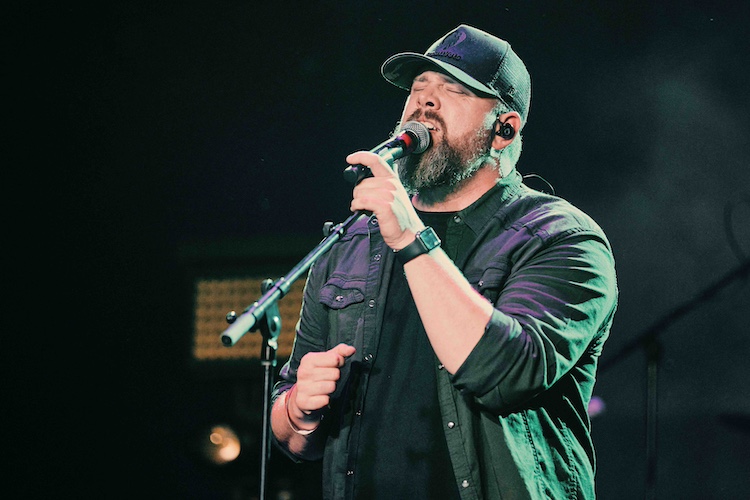
Narrator: To learn more about Scotty and his music, please visit www.scottyhasting.com, and be sure to follow him on social media.
Stay tuned to Dave Gibbons’ story after a brief message.
Available Now: The Jesus Calling Commemorative Edition
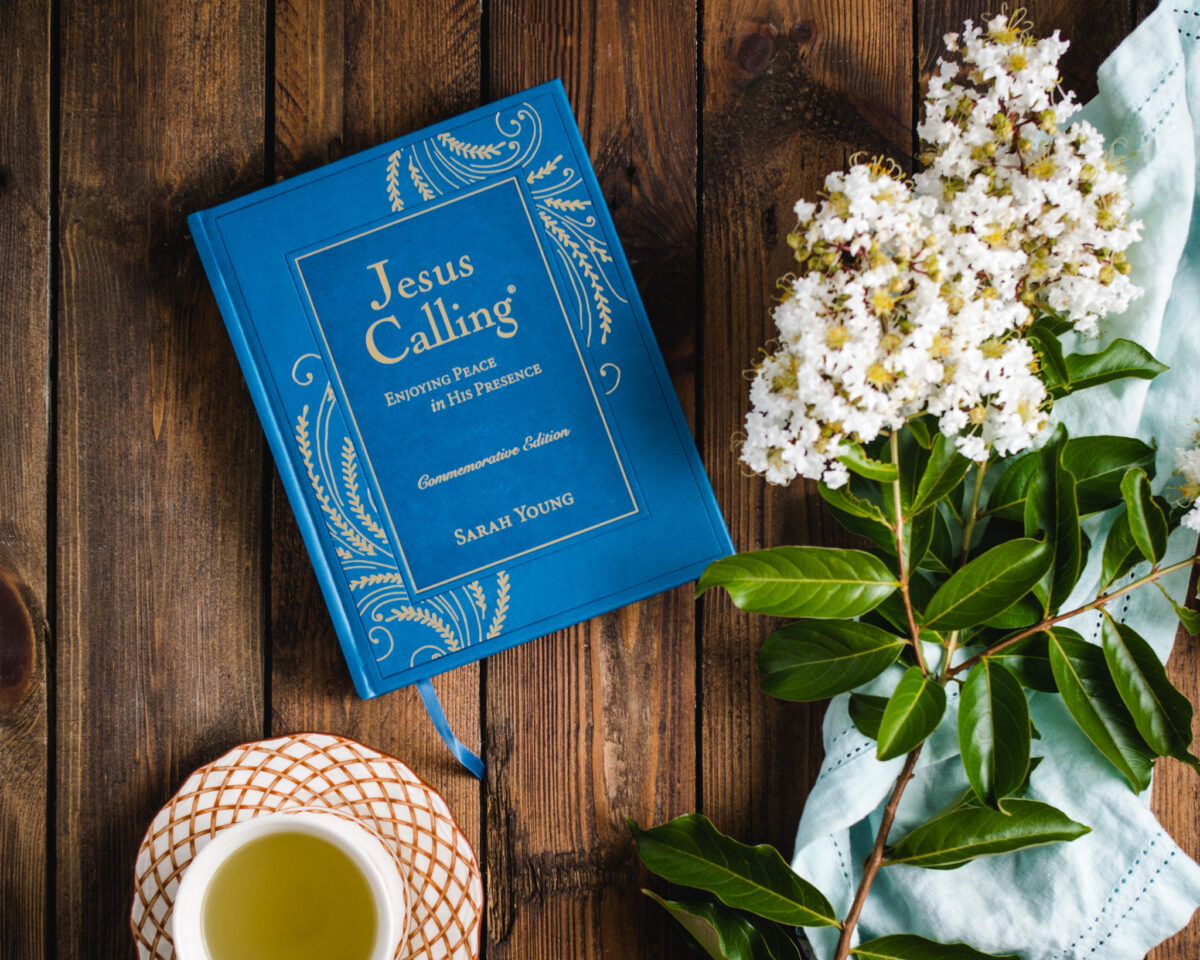
For over twenty years, readers have discovered the joy of spending time in the presence of the Savior with the much-loved daily devotions in Jesus Calling.
Now, in the Jesus Calling commemorative edition, you’ll feel comforted by words of hope and encouragement, and be reassured of Jesus’ unending love through author Sarah Young’s words of gentle guidance that are rooted in Scripture.
In this deluxe edition, you’ll find samples of Sarah’s original handwritten devotionals, twelve new devotions she penned before her passing, letters from Sarah to readers for each month of the year, and a touching tribute from Sarah’s daughter.
Experience a deeper relationship with Jesus as you savor the presence of the One who understands you perfectly and loves you forever. Find the Jesus Calling commemorative edition today at your favorite retailer or get 30% off your purchase at www.faithgateway.com.
Our next guest is Dave Gibbons, a globally connected author, advisor, and senior pastor at New Song Church in California. Advising such notable people as rapper Jeezy, artist Marina Abramović, Netflix Chairman of Film Dan Lin, and many others around the world, Dave approaches his work with a deep and personal understanding of what betrayal looks like, and how forgiveness can free us from our deepest wounds.
Dave Gibbons: Hi, I’m Dave Gibbons and I’m located here in Southern California. I live in several places here in California but also I love living in Korea and Bangkok about one to two months out of the year. And then I spend a good amount of time in South America, specifically Brazil, so I feel like all of these countries are like my home. And in terms of what I do, I’m an author, I’m an activist, I’m also a speaker, and then a senior leader at a church called New Song in California.
Curiosity About the World and How God Works
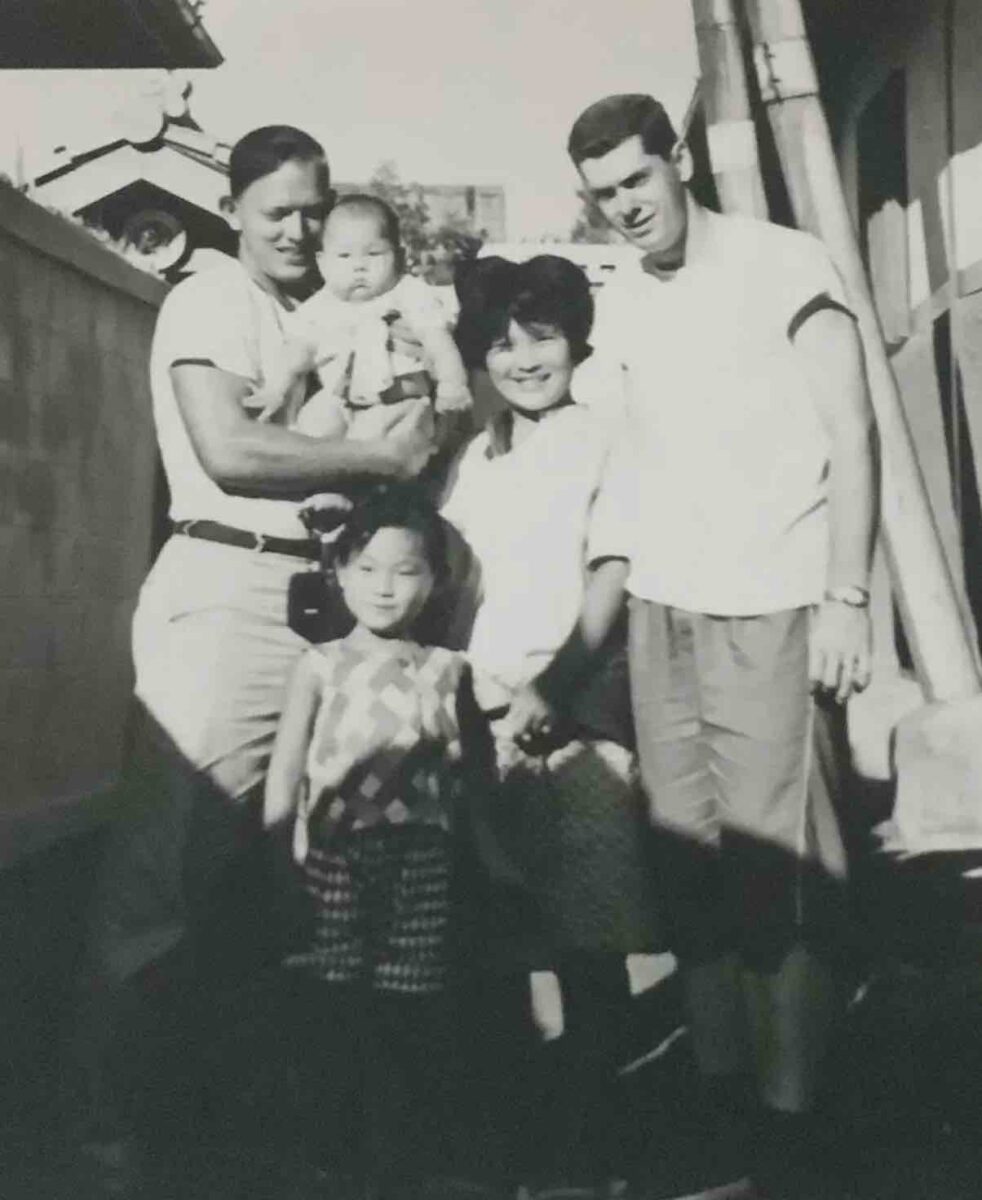
I grew up mostly in the U.S. I was born in Korea and then moved to Japan. And when I came to the States, it was like Narnia to me. I felt like this boy that was in The Jungle Book, where I had this curiosity about the world. I had a very outward focus in terms of learning about all these new frontiers that I was engaging in in rural Maryland. And so I didn’t think much about my identity. I just was absorbing information, it seems, enjoying my life.
And then as a fourth grader, we moved to Arizona, and my parents decided to start a new chapter of their life. My uncle was very into religion specifically, and he came from a more conservative denominational background. And so it was kind of frightening at first because they talked a lot about hell. And so I remember just being scared. I think a lot of my identity was formed from this nature boy, The Jungle Book, Narnia environment, to this very real perspective of life. What I was hearing, theologically, was that things are getting worse.
I had a really skewed view of God, to be honest. I was afraid of Him more than maybe attracted to Him as this loving person. As I grew older, I started seeing some flaws in the way they were dealing with things.
And over time, I think, I [came to] see God as much more loving. That’s probably the primary characteristic of God is that He tears down these walls and that He’s a unifier and that even though we may be different, it doesn’t mean the person is not a Christian. It means they have a different worldview, potentially, a different perspective on things, which often is very valid, even though it may be something we vehemently disagree with.
So I think there was this evolutionary thing that started unraveling for me looking at race and then looking at some of the things that were happening throughout my lifetime where I saw how in American culture, bigger and better was like the main cultural emphasis. And identity was around bigness and strength, whereas the more I studied my Asian cultural background, I saw there’s an acceptance, an embrace of suffering as a part of life. And suffering can actually be part of a way to go deeper into your humanity.
“Suffering can actually be part of a way to go deeper into your humanity.” – Dave Gibbons
Forgiveness Helps Us Move Beyond Betrayal
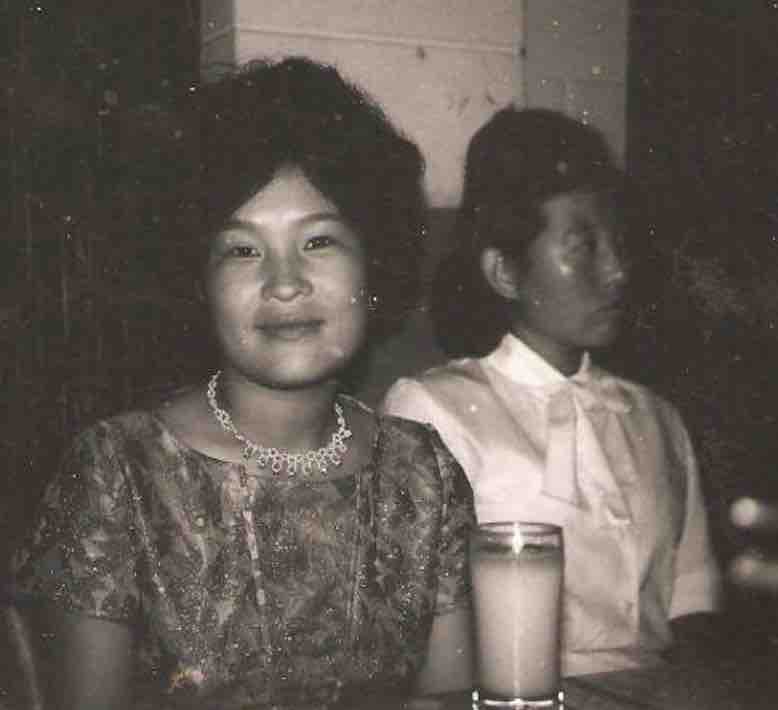
No matter what profession you’re in or what race or economic condition you come from, I think we’re all going to have people we feel that have betrayed us. And the betrayal is deep and it’s harmful.
My mom found out my dad had an affair. She went into this very dark place and she was devastated, she’s horrified, and she’s just weeping. We had police cars come to our house that night because my mom just became overtaken by the grief of her husband having an affair. The devastation that happened in our home was monumental. My mom, I don’t think, ever recovered from it. And then four years later, my mom passed away in a hit and run accident by a drunk driver.
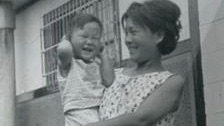
I had a problem with my father for that. But also because I found out that he had lied to me, because he told me he didn’t have the affair. But I found out through a series of incidents that he did. And I just stopped talking to him as a teenager. He stopped me one day and said, “You need to tell me why you’re not talking to me.” I said, “Well, you should know.” He said, “I don’t know..” I said, “Well, remember the day I washed your car? I found a note from someone other than Mom.” And he looked surprised for a second. And then he looked at me and said, “Well, everybody makes mistakes.” And I said nothing back to him. But internally in my mind, I said, “That’s not good enough.” And I didn’t talk to him for a long time, for years.
And then I was walking across the campus one day my junior year of college. And I felt that voice, you know, it wasn’t audible, it was in my spirit. I heard, “You need to forgive your father.” And I remember immediately responding, “But I can’t. I have no feelings for him. It’d be inauthentic.” And then I heard. “Do you think my Son felt like going to the cross?” And I said, “Oh, man.” It’s not about your feelings. It’s just doing what’s right. And that was a big step for me because a child just does whatever they feel or say, whatever is on their mind. It takes an adult who’s mature to be able to hold back. It’s kind of like Jesus, He showed His power not by unleashing that judgment that He had a right to, to deliver to people that were hurting and assaulting Him. But He held back His power. He did not access it. He chose not to. And I said, “Man, that shows even greater power to exercise restraint when you can actually hurt somebody. Where does that come from?” And I said, “Man, that comes from some type of understanding, I think, of the love of God.” You know, when you realize how much you’ve been loved and forgiven, it helps you to love others.
“When you realize how much you’ve been loved and forgiven, it helps you to love others.” – Dave Gibbons
And forgiveness wasn’t just like a verbal response to the accusers. But it was helping them to see their own brokenness. And then it was also just reminding others that forgiveness is not about condemnation. It’s a release from that.
Working Through Our Wounds with Grace and Understanding
There’s probably not a deeper wound in the human experience, relationally, than a sense of betrayal. I’ve been able to see with my clients and then with my community of faith, and communities I work with in companies that this is one of the most important elements within a team dynamic. Because being humans, we’re flawed, and we’re not going to say some things right or we’re going to unknowingly hurt somebody, or knowingly, even, if we get angry or triggered. We close the doors, bring down the shades, close the windows. And over the years, it gets really stuffy and dark and it drains us. I want to show a model of, like, me opening the doors of my own house, opening the windows and the shades, and letting the spring air in and saying, “Yeah, while it takes a lot of effort at first to open up, you’re going to feel so much better.”
This idea of forgiveness helps us to move beyond. Because if you can go there and still work out the wound and stick with the person, that deepens the friendship, it deepens a team, it deepens a relationship. And then for me, forgiveness also is this idea of grace. In that gap that you’re recognizing, you just fill it with grace. God shows us grace even when we’re broken and we don’t care and we don’t understand, even, the damage that we’ve done. He still seems to love us. Forgiveness is probably the greatest miracle to me in the Bible.
I’ll be reading from Jesus Listens, October 23rd:
Gracious Jesus,
From Your fullness I have received grace upon grace. I worship
You as I ponder Your astonishing gift of salvation—by grace through faith in You.
I’ve found that multiple blessings flow out of Your wondrous grace. My guilt feelings melt away in the warm Light of Your forgiveness. My identity as a child of God gives my life meaning and purpose. My relationships with other people improve as I relate to them with the love and forgiveness You’ve given me.
In Your merciful Name,
Amen
Narrator: To learn more about Dave Gibbons, visit www.davegibbons.org, and be sure to check out his new book, The Shape of My Eyes: A Memoir of Race, Faith, and Finding Myself, wherever you buy books.
If you’d like to hear more stories about navigating trauma with the help of God, check out our interview with Nona Jones.
Next week: Nicholas Sparks
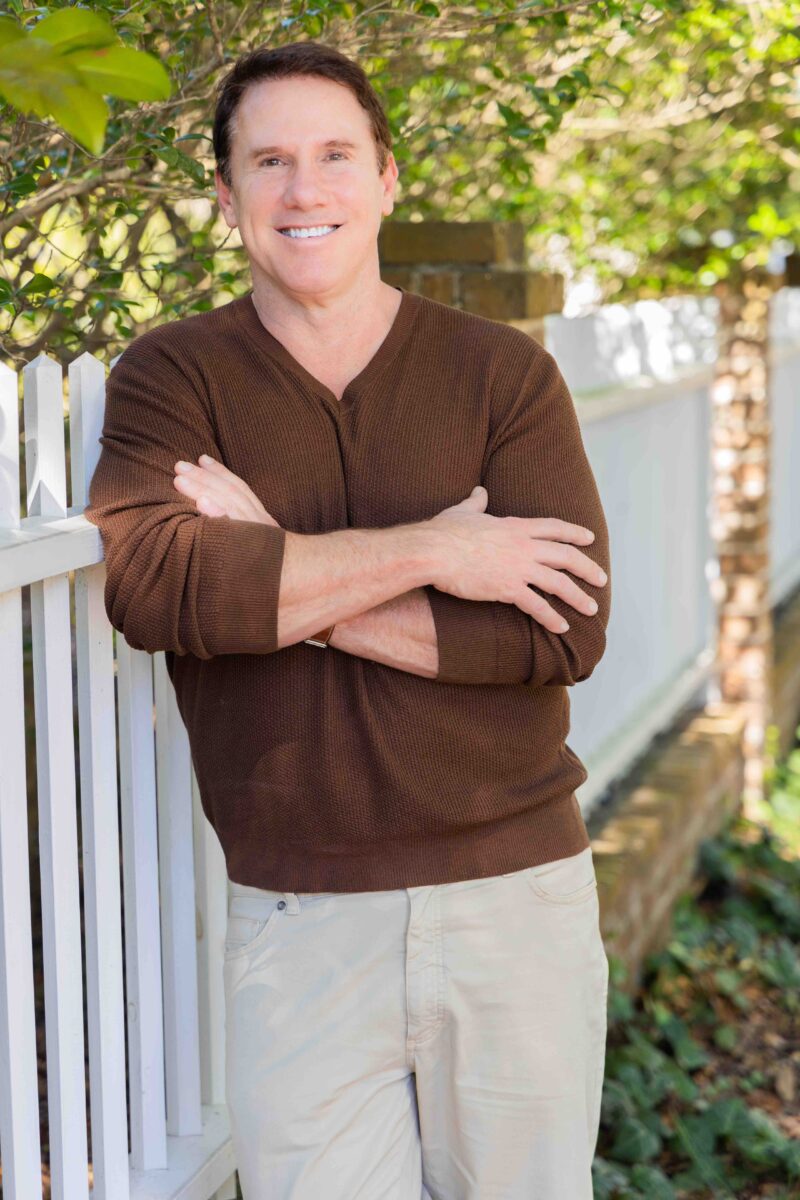
Next time on the Jesus Calling Podcast, we’ll hear from author Nicholas Sparks, writer of The Notebook and other beloved fiction novels, who shares how he turned to faith in his own life when things felt hopeless and bleak.
Nicholas Sparks: God created man and we fell from grace. Thus, bad things happen. It’s the nature of life for challenges to happen. And I think in the end, what is most important to God is that we choose to still believe, and we choose to love God.


